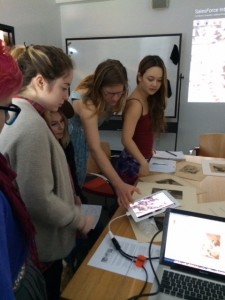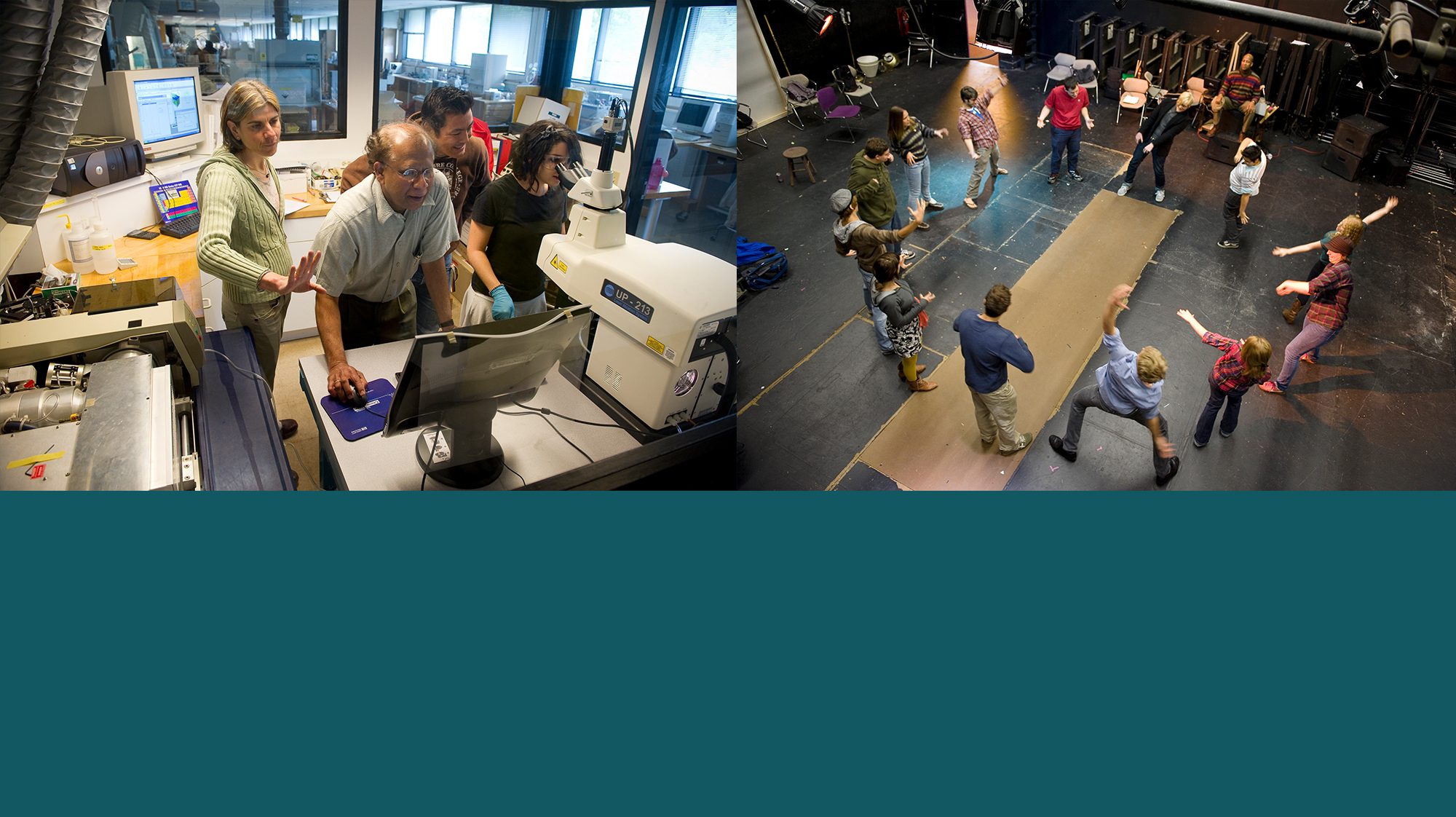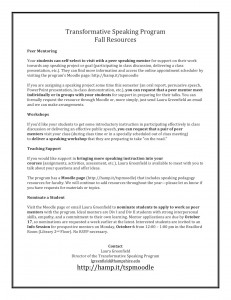 There is a great story about Karen Koehler’s Guernica tutorial in the October 20th post to The Harold. Read about it and ask Karen or Asha if you think this technology would serve you!
There is a great story about Karen Koehler’s Guernica tutorial in the October 20th post to The Harold. Read about it and ask Karen or Asha if you think this technology would serve you!
Send your teaching stories to ctl.hampshire.edu!


Center for Teaching and Learning
Fostering open exchange about teaching and learning among faculty and staff at Hampshire College
 There is a great story about Karen Koehler’s Guernica tutorial in the October 20th post to The Harold. Read about it and ask Karen or Asha if you think this technology would serve you!
There is a great story about Karen Koehler’s Guernica tutorial in the October 20th post to The Harold. Read about it and ask Karen or Asha if you think this technology would serve you!
Send your teaching stories to ctl.hampshire.edu!
There are 2 new resources for your Div II and III students that bring together resources, tips, event announcements, and reminders. Have your students visit the sites at:
First year students have the new programs page (sites.hampshire.edu/newtohamp).
There are prizes for students who visit. If you have tips you would like to post on the Div 2 and 3 sites, send them on to me at lwenk@hampshire.edu.
 The Transformative Speaking Program has resources available to you and your students this semester. Please visit the program’s Moodle page at http://hamp.it/tspmoodle for more information about the highlights listed below:
The Transformative Speaking Program has resources available to you and your students this semester. Please visit the program’s Moodle page at http://hamp.it/tspmoodle for more information about the highlights listed below:
1. You can request that a peer mentor meet with your students to work on developing skills for class discussion or presentations.
2. You can request that a team of peer mentors lead a speaking workshop for your students, during or outside of your class time.
3. Students can self-select to meet one-on-one with a peer speaking mentor to work on their general speaking skills or a particular discussion or presentation.
4. You can nominate students to apply to work as peer mentors for next year (application deadline Oct 17 and rolling thereafter).
5. You can request that a peer mentor be dedicated to work exclusively with you and students in your 100-level spring 2015 course in any discipline.
Questions? Contact Laura Greenfield at lgreenfield@hampshire.edu
Karen Koehler sent me a link to an article from Inside Higher Ed about a faculty member who banned student emails unless they were emailing to schedule an appointment with her. On first glance, it seemed drastic and un-Hampshire-like to Karen (and to me). But the purpose was to get students to use office hours. We do want students to come see us, to discuss their ideas, to get help if they need it, etc.
I am left with these questions:
Clearly, there is no one rule about office hours and office hour use. In addition to varied needs of students, we as faculty will have different wishes for how we communicate with students.
If you would like your students to use your office hours more effectively, consider the kinds of assignments you might give your students – maybe particularly starting with tutorial students – that help them to understand your role as a mentor and that gets them to work together. For example:
What Karen shared is that she has a project in her new NEH “Enduring Questions” course that she is teaching next semester for new Div II students where the students have to pick an object in the library, (book, film, photograph), find a faculty person they think would be interested in it, and interview them (which of course means finding their office hours…)
Be creative and send your ideas to ctl@hampshire.edu